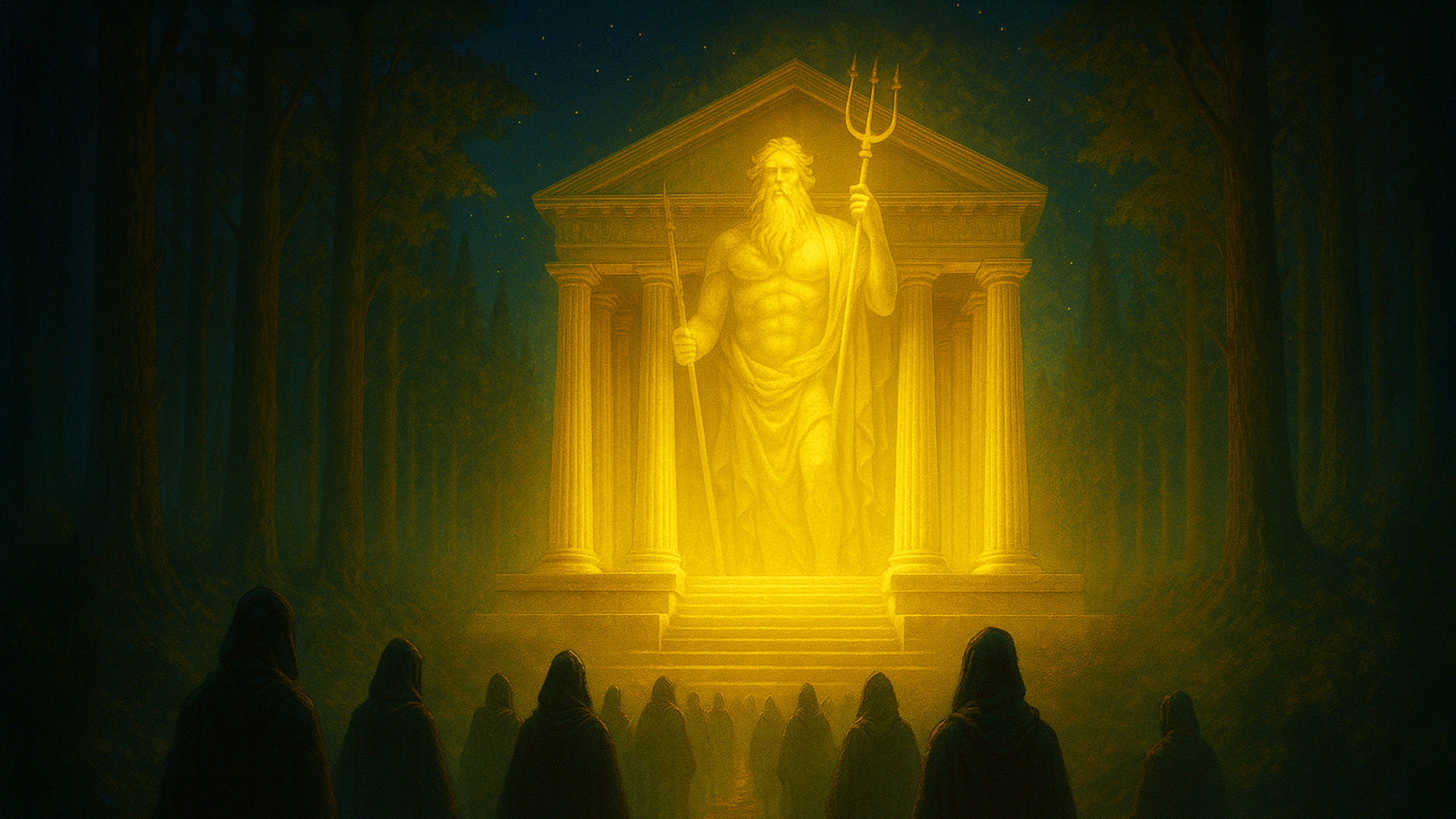I wrote and recorded this piece back in 1999 for glass armonica and synthesizers. Electronic music technology was still relatively primitive, and I was new at it. As I recall I had the following
* Yamaha DX7
* Yamaha FB-01
* Yamaha TX81Z
* Roland MT-32
The DX7 was new, everything else was scrounged used. All was routed to an analog mixer, and a hardware reverb (Alesis MicroVerb, I think). There were no DAWs yet — I used Cakewalk, which at the time was MIDI only. And played it back, recording the output of the analog mixer on my Windows 95 machine using SoundForge — it could record one channel of stereo audio, and that was it.
Despite my relatively primitive resources and being a newbie at using them, this piece has always had a special place in my heart. The idea of a great community of people coming together to thankfully praise their Creator (whatever the name) has always been a hopeful imagination for me.
![]()
Hymn to Poseidon
A Prelude from the Lost Scrolls of the Deep
Before the fall, there was wonder.
And before the wonder, there was water.
Atlantis did not rise by sword or empire, but by harmony — among its people, and with the great forces that moved beneath the sea and sky. It was no utopia, but for a span beyond reckoning, it lived in reverent rhythm with what the Atlanteans called The Order of the Waters.
At the heart of the capital stood the Temple of Poseidon, a sanctuary not of fear, but of gratitude. And there, at the turning of the seasons, the people gathered — farmers with salt on their hands, artisans, singers, shipwrights, children — not to plead, but to praise.
Their offering was not coin or conquest.
Their offering was music.
At the appointed hour, the temple bells tolled — deep, ceremonial, as if calling to something older than time. From the outer halls came the hush of chorus, rising like mist from the mouths of many, blending as one. Strings swelled — not with urgency, but with devotion. Harps shimmered like light on moving water. And then —
— from the center of the sacred space, the glass armonica began to sing.
Its sound was not earthly. It shimmered — pure, trembling, otherworldly — as if the sea itself had found voice in spinning crystal. The Atlanteans said it was crafted from quartz gathered at the ocean’s floor, its tuning aligned with the deep tides. It was their most sacred instrument, and none but the high cantors dared play it.
When Atlantis fell, the armonica’s voice was lost beneath the waves.
But some say the echo of its song drifted forward in time, into the dreams of a curious man in a later age — a man named Franklin.
But that is another story.
This one belongs to the day of praise — when the whole city gathered, shoulder to shoulder, to sing the Hymn to Poseidon. There was no soloist. No spectacle. The music was both offering and remembrance — a way to become again attuned to the source of their life: not merely the sea, but the divine breath that stirred it.
And when the final tone of the armonica faded — long, shimmering, like a sigh through water — there was no applause.
There was silence.
And then, tears.
Not of sorrow, but of awe.
In that age, Atlantis had not yet fallen.
It had not grown proud.
It had not become myth.
It was alive — and radiant with the greatness of which humanity is capable.



Leave a Reply